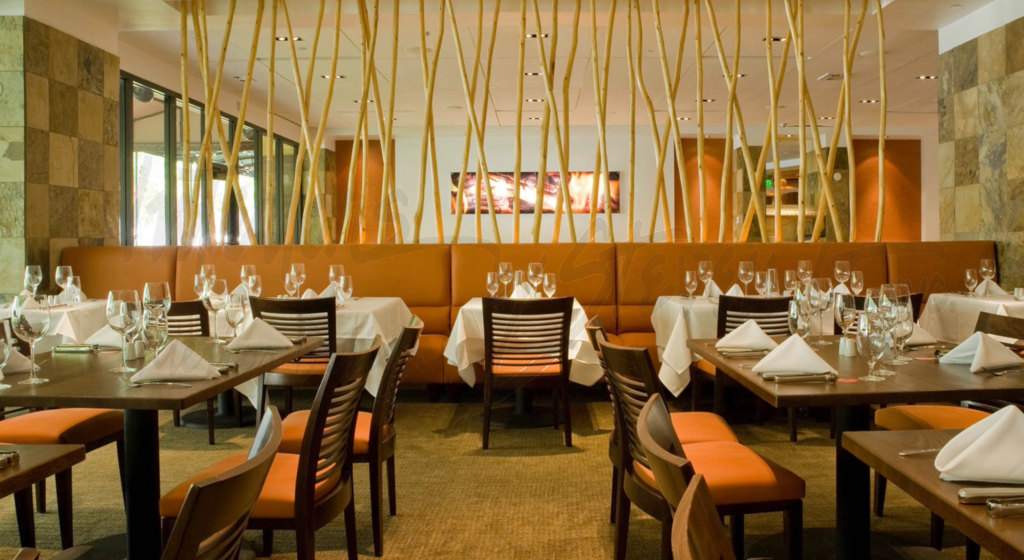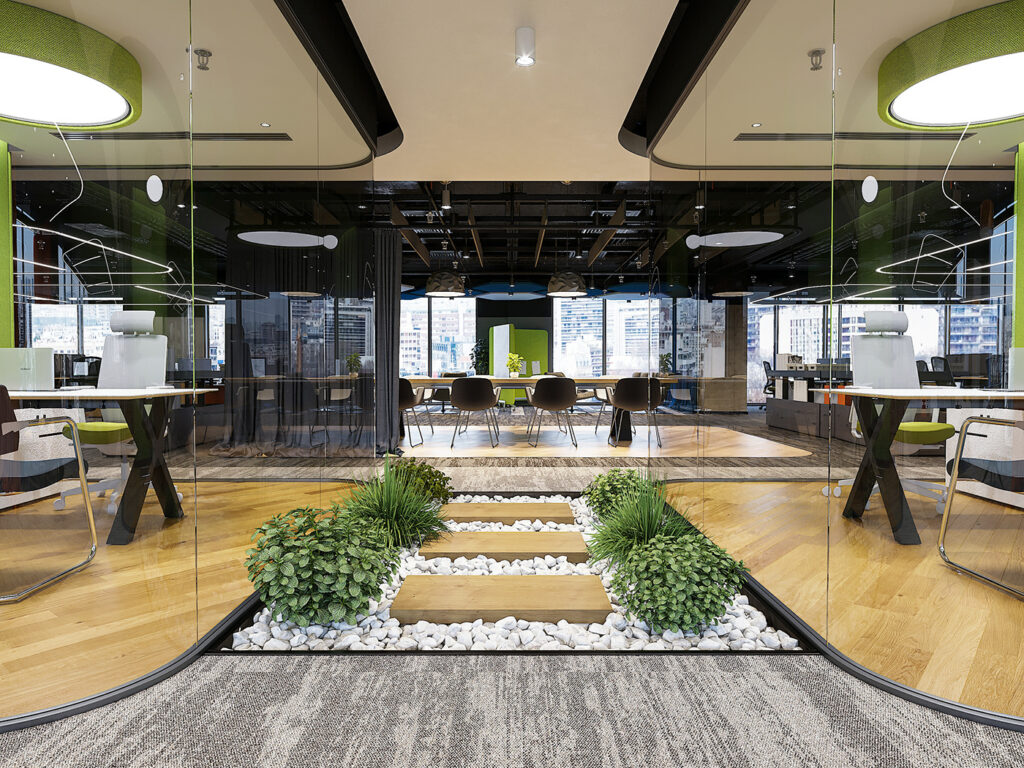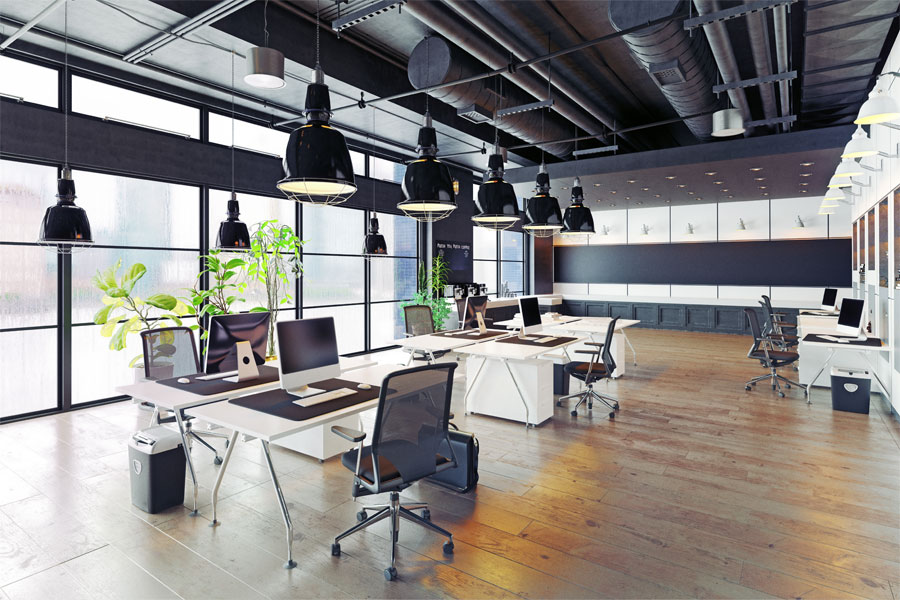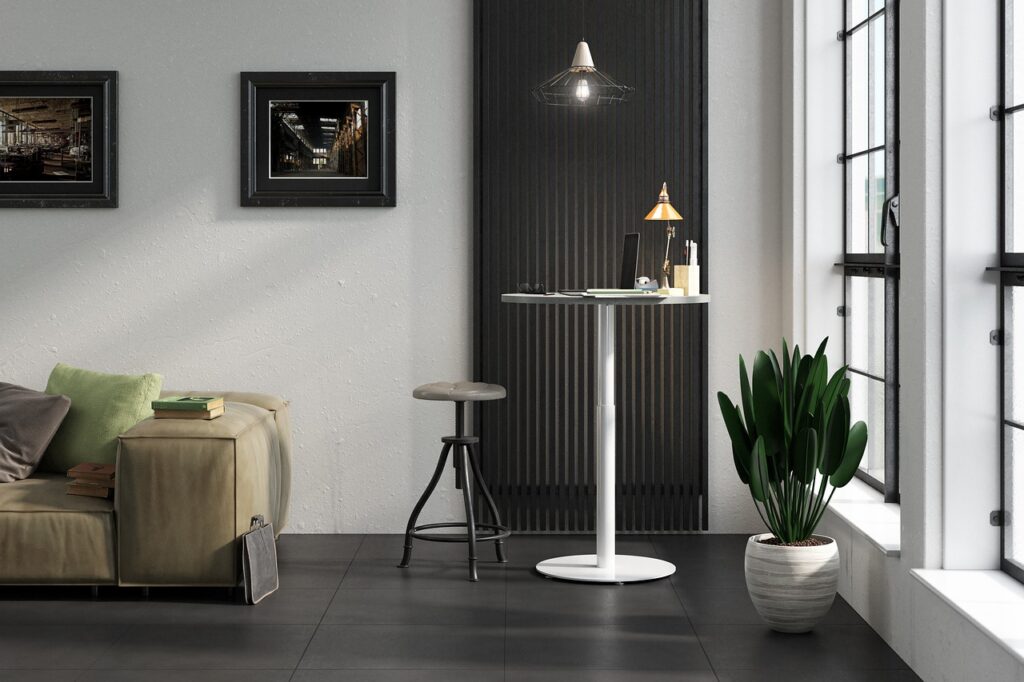In an era where technology permeates nearly every aspect of our lives, the field of commercial interior design is at a crossroads, poised to embrace the perfect synergy between technology and the human touch. This blog explores the fascinating convergence of these two forces in the world of commercial interior design, illustrating how they come together to create environments that are not only functional and efficient but also deeply human-centered and aesthetically pleasing.
The Pinnacle of Office Interior Design: Balancing Tech and Comfort
Office interior design has witnessed a significant transformation, thanks to the integration of cutting-edge technology. However, it’s not just about gadgets and automation. Discover how designers are infusing the workplace with technology that enhances employee well-being, productivity, and collaboration while preserving a warm and inviting atmosphere.
Restaurant Environments: Where Digital Meets Culinary Artistry
In the culinary world, the dining experience is no longer confined to the plate; it extends to the ambiance. Dive into the realm of restaurant interior design, where digital menus, interactive displays, and immersive lighting converge to create unforgettable dining experiences that engage all the senses.
Tech-Infused Architect Offices: Nurturing Innovation
Architects are visionaries, and their offices should be reflective of their creative spirit. Explore how architect office designs seamlessly blend technology with human-centric spaces, fostering innovation, collaboration, and the exchange of visionary ideas.
Human-Centric Design: The Core of Commercial Interior Evolution
Amidst the whirlwind of technological advancements, the heart of commercial interior design remains deeply human-centric. Understand how designers prioritize user experience, comfort, and well-being, ensuring that technology enhances rather than detracts from the human touch.
Sustainability in the Digital Age
Sustainability is not forgotten in this technological age. Discover how eco-friendly materials, energy-efficient systems, and biophilic design principles are seamlessly integrated into commercial spaces, reflecting a commitment to the environment and human health.
Navigating the Digital Landscape
In the digital age, commercial interior design embraces seamless connectivity. Learn how smart office solutions, IoT devices, and digital interfaces enhance user experiences, making spaces more interactive, efficient, and user-friendly.
Real-Life Success Stories
Explore case studies of commercial spaces that have successfully embraced the marriage of technology and human-centric design. These examples highlight the transformative power of this synergy in creating spaces that optimize functionality, reflect brand identity, and enhance the overall user experience.
Looking to the Future: Augmented Reality and Beyond
As technology continues to advance, what lies ahead for commercial interior design? Anticipate trends such as augmented reality (AR) applications, virtual reality (VR) immersive experiences, and the integration of AI-driven design solutions, all of which promise to redefine our interactions with built environments.
The Harmonious Blend
In the realm of commercial interior design, the integration of technology and the human touch is not a clash of opposites; it is a harmonious blend that promises to elevate our experiences within these spaces. From innovative office environments to experiential dining venues and architect offices that nurture creativity, this synergy is the bridge to the future. As we move forward, we can expect commercial interior design to continue embracing this dynamic balance, creating spaces that are efficient, sustainable, and deeply human-centered, enriching our lives in ways we have yet to fully imagine. Explore this exciting journey where technology and the human touch unite to shape the future of commercial spaces.





